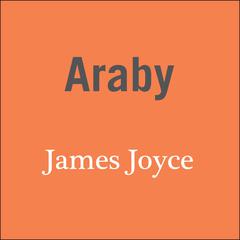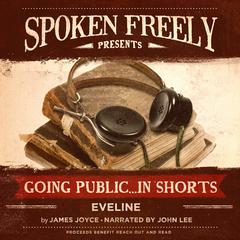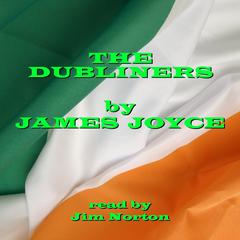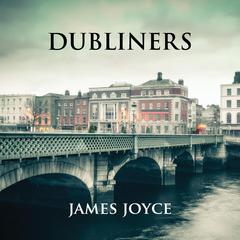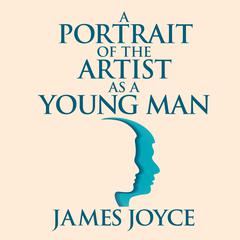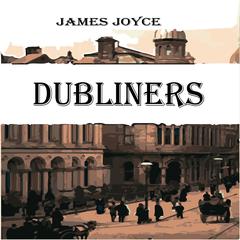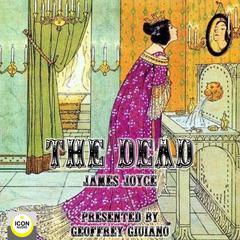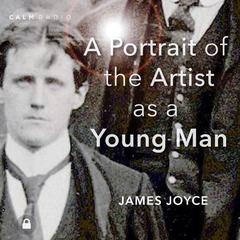Quick Stats About this Audiobook
Total Audiobook Chapters:
Longest Chapter Length:
Shortest Chapter Length:
Average Chapter Length:
Audiobooks by this Author:
Plot Summary
A Portrait of the Artist as a Young Man is a semi-autobiographical novel by James Joyce, ranked the third greatest novel in the English language for the 20th century, by Modern Library.
Stephen Dedalus is essentially the alter-ego of Joyce, and this tale is of his coming of age, where the realizations both intellectual and spiritual are detailed. It is set against the framework of Irish Catholicism of his childhood. Dedalus, embarks on a journey to nurture his artistic ambitions. This is a third-person narrative without much dialogue, and progresses in complexity of language with each chapter, a reflection of the maturing and development of Dedalus' consciousness. Some scenes are longer than others, particularly when the state of mind of Dedalus is meant to be captured.
It is set in Dublin, and deals with issues such as independence from religion, and specifically from the Catholic Church. The use of the name Dedalus is an allusion to the Greek myth of Daedalus and Icarus, where Daedalus is an architect and inventor who becomes trapped in a labyrinth of his own construction and fashions wings for escape out of feathers and wax.
James Joyce, born in the mid 1800s, was both novelist and poet and was famous for his use of stream-of-consciousness style writing in Ulysses. He is considered one of the preeminent modern avant-garde writers, also famous for the Dubliners and Finnegan's Wake. He once stated that all his writing was essentially about the city of Dublin, for if he could get to the heart of Dublin, he could get to the heart of any city in the world.
"The book not only has a great composition and style, rich with prose and that wonderful gradual change in style, but the well timed series of events and personal feel to it make the book leave one with a romantic and uplifted feeling. I would recommend it to any aspiring writer."
— Ignacio (5 out of 5 stars)
Publisher Summary
Perhaps James Joyce's most personal work, A Portrait of the Artist as a Young Man depicts the intellectual awakening of one of literature's most memorable young heroes, Stephen Dedalus. Through a series of brilliant epiphanies that parallel the development of his own aesthetic consciousness, Joyce evokes Stephen's youth, from his impressionable years as the youngest student at the Clongowed Wood school to the deep religious conflict he experiences at a day school in Dublin, and finally to his college studies, where he challenges the conventions of his upbringing and his understanding of faith and intellectual freedom. Joyce's highly autobiographical novel was first published in the United States in 1916 to immediate acclaim. Ezra Pound accurately predicted that Joyce's book would "remain a permanent part of English literature," while H. G. Wells dubbed it "by far the most important living and convincing picture that exists of an Irish Catholic upbringing."
A remarkably rich study of a developing young mind, A Portrait of the Artist as a Young Man made an indelible mark on literature and confirmed Joyce's reputation as one of the world's greatest and lasting writers.
Download and start listening now!
A Portrait of the Artist as a Young Man Listener Reviews
-
" Mixed feelings. Hated it when I read it on my own, but enjoyed reading it for a class. "
— Sarah, 2/20/2014 -
" The writing is deep and descriptive. Unfortunately for me, I was reading it online and reading a computer screen versus reading a physical book is just not the same for me. I tend to lose some of the significance when I scroll. Therefore, while I recognize the work this book is, I didnt really enjoy that much. But then again, I didn't really get Dubliners either so I guess I'm just not a Joyce fan. "
— Heather, 2/15/2014 -
" The poetic Joyce is never so clearly shown as IT is in this work, all the sentences are just woven together by rhythm and form. This is is the reason why I recommend it as a first read of a work by Joyce. however, the very basics of this book are quite fragile. Literature is about form but in the first place, it is about a story. And the most fundamental part of a story are its characters. That is the short-coming of this book, and the reason why it isnt as transcendental as Dubliners or Ulysses. Stephen is just an arrogant prick. It's true. he disrespects his family, his country and his peers but still he is dependent of them. The lack of other themes than Dedalus' becoming of an artist and the endless self-love by Joyce drag this work down. Dont get me wrong, it is still a very good read, but is misses a deeper feeling, which was present in Joyce's other works. "
— Boris, 1/27/2014 -
" Well, I read it, and that's about all I can say. It's pretty weird. "
— Rachel, 1/20/2014 -
" Blah, Blah, Blah! Hated the book! "
— Marilyn, 1/19/2014 -
" Skip, unless you want a gut-wrenching, depressing read. "
— Chris, 1/5/2014 -
" My dad gave me this book in 1994 and I just finished it after starting and stopping every few years. Joyce's prose is a delight and a challenge, so much so that I read a chapter or two out loud. The final pages left me with a smile on my face. "
— Sarah, 1/2/2014 -
" I'll confess--I did not get very far in this book. I was supposed to read it for an English class in college. But I just could not do it. "
— Beth, 6/8/2013 -
" I need to re-read this one, someday, in a couple of years. "
— Jolanda, 6/2/2013 -
" I know this is meant to be a classic but I'd rather gouge my eyes out with spoons than read it again. Felt it had as many pages as Ulysses. A book not to be put down lightly but thrown with great force. "
— Joanne, 4/4/2013 -
" This book is very hard to read. Very specific book. If you aren't into theological stuff, this may be very boring for you. "
— Artur, 4/15/2011 -
" I got to the hellfire bits and have stagnated... "
— Margaret, 1/11/2011 -
" neat modernist writing techniques like the progression of thought-pace and vocab as stephen dedalus grows older, but overall not a fun read. clever for clever's sake. "
— Iris, 1/4/2011 -
" This is a jewel to be treasured. Vivid in description and expression. Prose becomes poetry. "
— Tony, 7/16/2010 -
" If you are going to read Joyce, start here, then tackle Ulysses. Plain and gutteral, beautiful and disturbing. Catholic and Irish. The inner struggle all comes out. "
— David, 8/5/2009 -
" Stunning in parts. The scene at the dinner table near the start in particular is pivotal to Irish Literature. "
— Stuart, 9/17/2008 -
" A tough read. I had to read it twice to understand what was going on. I'm not sure all that hard work was really worth it. "
— Steve, 5/4/2008 -
" If you grew up in zealous Catholic family and community it might be the best book you've ever read. If you didn't grow up like that, then I don't know what it will be. "
— Richie, 4/29/2008 -
" This is book is the gateway into Joyce. I liked the story and the experimental use of language along with some well-written prose. "
— Mikael, 6/1/2006 -
" Disclaimer: not a fan of James Joyce "
— Inna, 4/6/2006 -
" The religion chapters were ace. "
— Jared, 12/26/2005
About James Joyce
James Joyce (1882–1941) was an Irish expatriate writer, widely considered to be one of the most influential writers of the twentieth century. He is best known for his landmark novel Ulysses and its highly controversial successor Finnegans Wake, as well as the short-story collection Dubliners and the semi-autobiographical novel A Portrait of the Artist as a Young Man.
About John Lee
John Lee is the winner of numerous Earphones Awards and the prestigious Audie Award for Best Narration. He has twice won acclaim as AudioFile’s Best Voice in Fiction & Classics. He also narrates video games, does voice-over work, and writes plays. He is an accomplished stage actor and has written and coproduced the feature films Breathing Hard and Forfeit. He played Alydon in the 1963–64 Doctor Who serial The Daleks.










